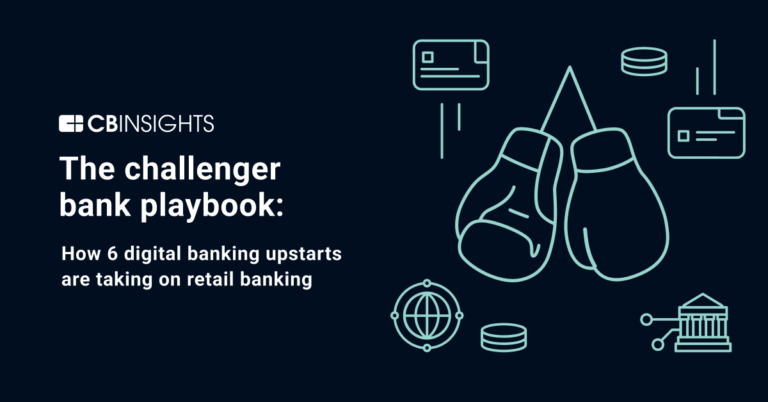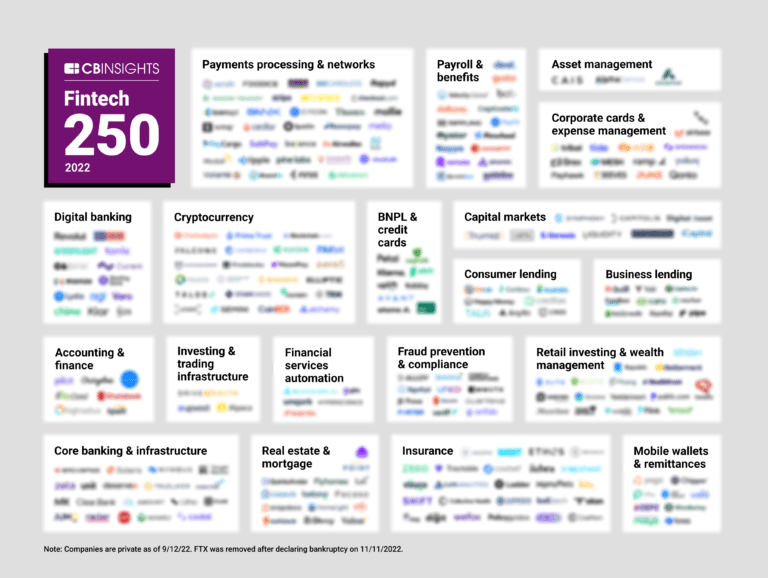
Chime
Founded Year
2012Stage
IPO | IPOTotal Raised
$2.599BDate of IPO
6/12/2025Market Cap
11.53BStock Price
31.32Revenue
$0000About Chime
Chime is a financial technology company that provides banking services. The company offers a banking app that includes features such as direct deposit, no overdraft fees, and resources for financial literacy. It was founded in 2012 and is based in San Francisco, California.
Loading...
Chime's Products & Differentiators
SpotMe
Fee free overdraft alternative
Loading...
Research containing Chime
Get data-driven expert analysis from the CB Insights Intelligence Unit.
CB Insights Intelligence Analysts have mentioned Chime in 3 CB Insights research briefs, most recently on May 2, 2023.
Expert Collections containing Chime
Expert Collections are analyst-curated lists that highlight the companies you need to know in the most important technology spaces.
Chime is included in 5 Expert Collections, including Unicorns- Billion Dollar Startups.
Unicorns- Billion Dollar Startups
1,276 items
Fintech 100
999 items
250 of the most promising private companies applying a mix of software and technology to transform the financial services industry.
Tech IPO Pipeline
539 items
Track and capture company information and workflow.
Fintech
9,653 items
Companies and startups in this collection provide technology to streamline, improve, and transform financial services, products, and operations for individuals and businesses.
Digital Banking
1,153 items
Challenger bank offer digitally native banking products (checking and savings account at the most basic) and either leverage partner banks or are fully-licensed banks themselves.
Chime Patents
Chime has filed 8 patents.
The 3 most popular patent topics include:
- computer security
- machine learning
- remote desktop

Application Date | Grant Date | Title | Related Topics | Status |
|---|---|---|---|---|
3/18/2024 | 4/1/2025 | Machine learning, Units of information, Wireless networking, Artificial intelligence, Remote desktop | Grant |
Application Date | 3/18/2024 |
|---|---|
Grant Date | 4/1/2025 |
Title | |
Related Topics | Machine learning, Units of information, Wireless networking, Artificial intelligence, Remote desktop |
Status | Grant |
Latest Chime News
Jul 7, 2025
Neobanks Fail to Deliver on Big Promises; Industry Poised for Consolidation and Strategic Shifts Despite bold promises to disrupt traditional banking, many neobanks are still overly reliant on payment fees, show limited lending activity, and face high customer acquisition costs. Get the hottest Fintech Switzerland News once a month in your Inbox While neobanks promised to disrupt traditional banking with cheaper, branchless, and digital-first services, these ambitions have largely failed to materialize. Many neobanks now operate instead as costly payment companies with unsustainable business models, according to Tobias Pfütze, a financial services professional, entrepreneur, and co-founder of working capital provider Originate Capital. In a new post published on LinkedIn, Pfütze offers a critical analysis of the modern neobanking landscape, examining the gap between initial promises and current performance. He highlights the sector’s key challenges and limitations while outlining possible scenarios for its evolution in the coming years. Not real banks Pfütze notes that these digital challengers emerged over the past decade claiming to eliminate expensive branches, reduce operational costs, and pass the savings to consumers through fee-free banking and superior user experiences. However, fast forward to 2025, and the reality is now starkly different. For starters, many neobanks aren’t even truly banks, but rather tech companies that partner with licensed banks to offer financial services. Without a license, these companies cannot hold deposits or lend directly, limiting their revenue potential and control over core banking operations. For example, Chime is the largest neobank in the US with 8.6 million customers and US$1.67 billion in revenue, and yet, the company depends relies on banking licenses from The Bancorp Bank, and Stride Bank. As a result, Chime must generate revenue through fee structures and partnerships, while bearing the customer acquisition and operational costs that traditional banks spread across multiple revenue streams. Heavy reliance on payments Hence, many neobanks are little more than payment companies that heavily relying on interchange fees, Pfütze says. For example, a staggering 76% of Chime’s revenue comes from interchange fees, supplemented by out-of-network ATM fees and other transaction-based income. In comparison, traditional banks generate most of their revenue from net income, which typically account for a 60-65% share, in addition to fee-based services and wealth management, commercial banking and treasury operations, investment banking and trading activities, as well as insurance and other diversified services. According to Pfütze, this interchange dependency creates several fundamental problems by introducing regulatory and economic risks. For example, in Europe, interchange fees are capped at 0.2% for debit and 0.3% for credit transactions, dramatically reducing the viability of interchange-dependent business models. Furthermore, interchange revenue correlates directly with consumer spending, which drops during economic downturns. Limited lending activity Another issue Pfütze highlights is neobanks’ limited lending activity despite holding sizable deposits. For example, Monzo, a British online bank, recorded customer deposits totaling GBP 11.2 billion in 2024. However, loans and advances to customers totaled a mere GBP 1.2 billion, giving it a loan-to-deposit ratio of 10.7%, he says. In comparison, traditional banks typically maintain loan-to-deposit ratios between 55% and 65%. This means that many neobanks sit on accumulated deposits that aren’t profitably deployed through lending, while payment competitive rates are being paid to customers to attract their funds. Loan-to-deposit ratios, Source: Tobias Pfütze via LinkedIn, Jun 2025 Revolut: a focus on crypto Revolut offers an interesting example of a licensed digital bank that heavily depends on non-banking revenue streams. In 2024, the UK-based digital bank generated GBP 3.1 billion in total revenue, with wealth representing 16.3% of total revenue at GBP 506 million. Pre-tax profit totaled a record of GBP 1.1 billion, largely fueled by wealth and crypto trading activity. These figures mean that Revolut’s record-breaking profitability was substantially driven by customers speculating on cryptocurrencies rather than traditional banking services, highlighting the speculative nature of this revenue stream and raising questions about sustainability. Revolut revenue composition, Source: Tobias Pfütze via LinkedIn, Jun 2025 Furthermore, Revolut’s increased dependency on crypto activities comes with significant regulatory challenges. In April 2025, the digital bank was fined EUR 3.5 million by the Bank of Lithuania for anti-money laundering (AML) failures related to crypto transactions. High customer acquisition costs Pfütze also points out that neobanks face high customer acquisitions costs. While traditional banks acquire customers through branch networks, referrals, and organic growth from life events, neobanks, on the other hand, lack physical presence and established relationships, requiring them to rely on expensive digital marketing campaigns. Chime, for example, spent a staggering US$1.4 billion on marketing between 2022 and 2024 to acquire 8.6 million customers, representing approximately US$163 per customer acquisition cost. This amount is nearly triple JP Morgan Chase’s estimated US$61 per customer. JP Morgan spent approximately US$4.9 billion on marketing across all business lines in 2024, serving over 80 million customers. Predictions for neobanking Given these trends, Pfütze expects most successful neobanks to pivot away from becoming full-fledged banks, positioning themselves instead as payment companies with financial service features. These companies will focus on payment processing, foreign exchange (FX), and financial management tools. Many will expand their business-to-business (B2B) payment offering to diversify revenue beyond consumer interchange. They will also partner more explicitly with traditional banks for lending and deposit services. Pfütze also expects consolidation in the market to accelerate as standalone business models increasingly prove unsustainable. Traditional banks will acquire neobank customer bases and technology platforms while shutting down unsustainable operations. Meanwhile, big techs like Apple, Google, and Amazon will acquire neobank infrastructure to support their embedded finance strategies. Finally, larger neobanks will acquire smaller players to achieve the necessary scale for sustainable unit economics. The global neobanking industry has surged over the past years. In 2023, the sector boasted about 400 players worldwide, serving roughly 1.1 billion customers, according to global consultancy Simon-Kucher. Among the most successful ones are Revolut and Wise from the UK, Nubank from Brazil, and WeBank from China. These companies serve a total of 578 million customers collectively. Largest neobanks in the world by number of customers, Source: Neobanking Valuations, Multiples, Apr 2025
Chime Frequently Asked Questions (FAQ)
When was Chime founded?
Chime was founded in 2012.
Where is Chime's headquarters?
Chime's headquarters is located at 101 California Street, San Francisco.
What is Chime's latest funding round?
Chime's latest funding round is IPO.
How much did Chime raise?
Chime raised a total of $2.599B.
Who are the investors of Chime?
Investors of Chime include Crosslink Capital, Menlo Ventures, Dragoneer Investment Group, General Atlantic, Tiger Global Management and 29 more.
Who are Chime's competitors?
Competitors of Chime include Deserve, MoneyLion, Revolut, Current, Jiko and 7 more.
What products does Chime offer?
Chime's products include SpotMe and 2 more.
Loading...
Compare Chime to Competitors
KikOff is a personal finance platform that offers a revolving line of credit and a secured credit card. These financial products aim to assist individuals in establishing a payment history and improving their credit scores. KikOff serves individuals interested in building or enhancing their credit profiles. It was founded in 2019 and is based in San Francisco, California.

Varo is a digital bank that provides financial services. The company offers savings accounts, credit-building tools, and borrowing options like cash advances and personal lines of credit. Varo primarily serves individuals seeking banking solutions. Varo was formerly known as Ascendit Holdings. It was founded in 2015 and is based in San Francisco, California.

Atom bank is a digital bank that provides financial services such as savings accounts, mortgages, and business loans. The company offers savings products with various interest rates, mortgage solutions, and business financing options, all managed through a mobile app. Atom bank serves individuals and small to medium-sized enterprises seeking banking solutions. It was founded in 2014 and is based in Durham, England.

Current provides banking solutions. The company offers a mobile banking platform that includes direct deposit, credit building, and overdraft options. Current provides cryptocurrency trading and savings accounts with variable interest rates. It was founded in 2015 and is based in New York, New York.
Bancacao is a developer of banking products. The company's Tzune is a digital financial services platform that offers fair, contactless, and personal solutions.

Starling Bank is a digital bank that focuses on providing a range of banking services within the financial sector. The company offers personal and business banking solutions, including current accounts, overdrafts, loans, and money transfer services, all accessible through an intuitive mobile app. Starling Bank primarily serves individuals and businesses looking for modern, mobile-first banking experiences. It was founded in 2014 and is based in London, United Kingdom.
Loading...



